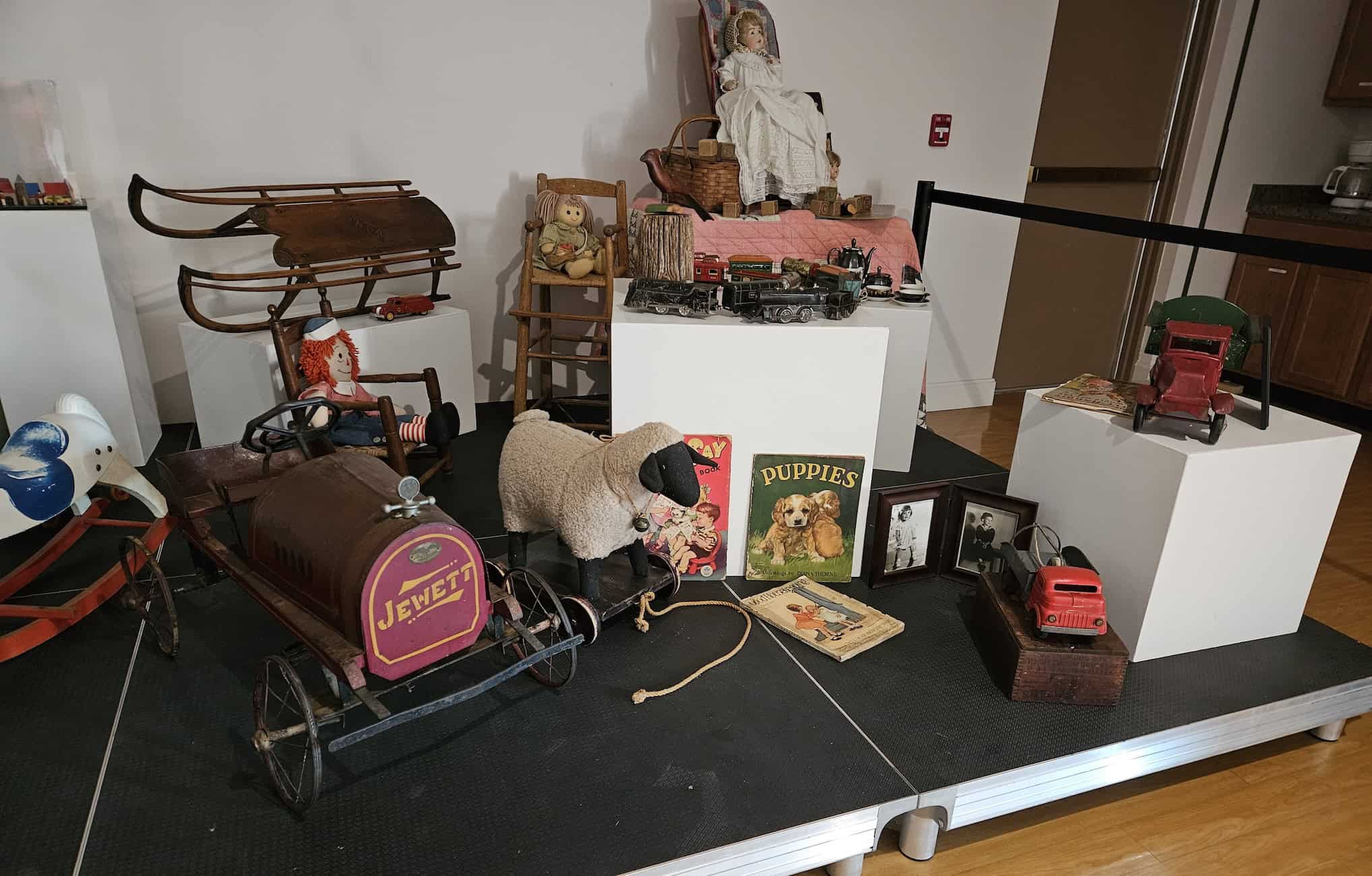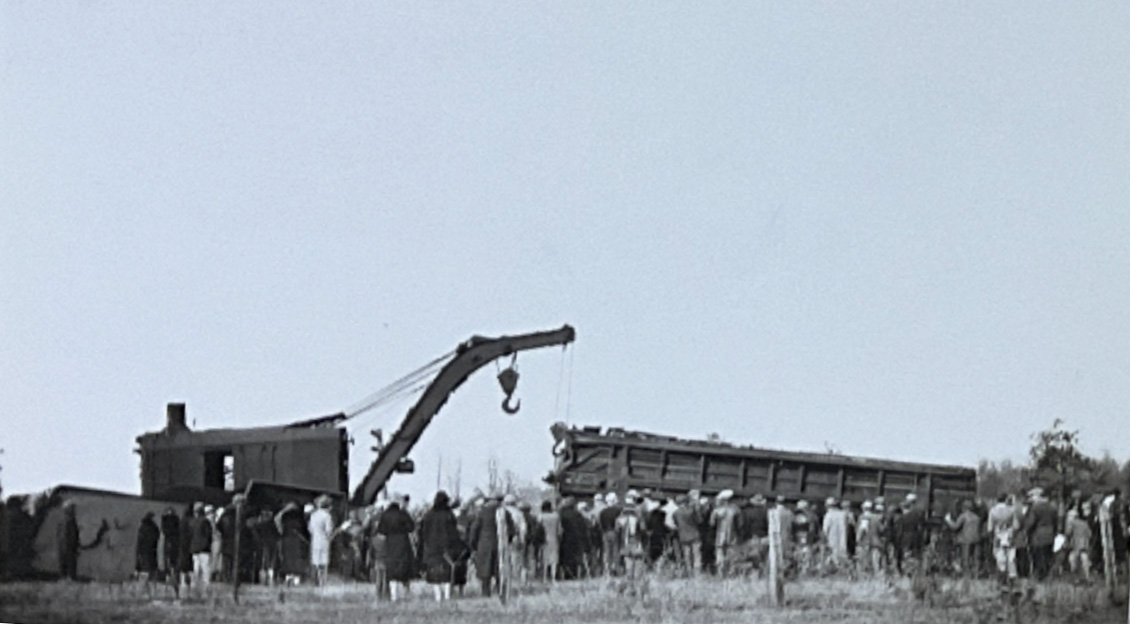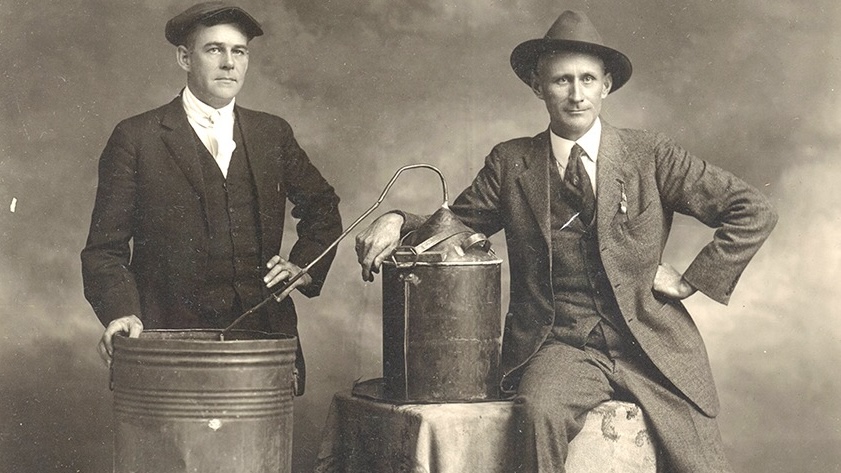Margaret Dixon needed money to buy makeup and new clothes, “So, like most teens,” she recalls, “I got a job.”
It was March 1965 and her parents had just moved her and her nine sisters and one brother from St. Louis County to Wright City. There weren’t many options for teens seeking work in the rural, farming community — and fewer still for young women. But Big Boy’s Restaurant had just reopened after a change in ownership and a three-month renovation with a “Now hiring” sign out front. “So I trained as a waitress,” recalls Dixon.
Big Boy’s Restaurant was under new ownership after the founding Chaney family retired after forty years behind the chicken fryer. Kurt Nathan bought the restaurant and encouraged his son-in-law and daughter Ed and Lola Baseel — two people no one expected to operate a roadside chicken restaurant — to come operate it with him. Within six months, however, Mr. Nathan decided to move on, leaving Ed and Lola to dive in with their hearts and minds. This became the start of “The Baseels’ Big Boy’s era”.
“Eddie was a plumber, and Lola was regal in her appearance, to say the least,” recalls Jan Lutz. Lutz, a Wright City native whose father worked on the Chaney’s original chicken farm, is also a good friend of the Baseel’s daughter, Mary.
Lutz worked at Big Boy’s off and on in summers and on weekends throughout the 1960s, 70s, and even the 80s. “Margaret and I were responsible for the restaurant on Tuesdays and I’d drive into St. Louis and pick up the meat for the week — like steaks and hamburgers. Chicken was delivered at least twice a week and ten people prepped on Fridays for Saturday and Sunday service,” says Lutz.
Without hesitation, Dixon says, “We had so much fun. We made good money, especially after football games and on weekends. Eddie and Lola — they ran a tight ship, and they taught you how to be a good waitress and about customer service. I worked with other kids in high school around my age,” she adds, even training others to become waitresses. Among those she trained to be a waitress included Lutz.
“I made $30-$40 a day,” says Dixon. That’s about $270 a day in 2021 dollars, or about $60,000 a year on a 30-hour work week schedule. Money was so good, in fact, Dixon says, “I stayed working there, because I could make more in three days than most people did in five. It was always good money and convenient for me. It was well-kept, well-maintained, clean, and a lot of our customers were travelers off the highway.”
Big Boys’ parking lot pulled right off U.S. 40 — and later sat a few blocks away from Interstate 70 when it was opened in 1965. Many celebrities that came through in the peak seasons. Baseball star Ozzy Smith, John Glen the astronaut, Chuck Berry (a Wentzville native), and IU Basketball coach Bobby Knight sit atop Dixon’s memories.
Dixon recalls it wasn’t the few hundred local farmers and families that sustained Big Boy’s in those days, it was travelers. But travelers were seasonal, and the gas constraints of the 1970s crimped traveler’s appetites for long-distance chicken dinners. The Baseels turned to daily lunch specials to help recruit more local diners.
Still, Dixon remembers Eddie and Lola Baseel took care of their staff, most of whom relied on tips to make up for the $2 a day base pay when times were slow. “Eddie would come in and slip a $20 in your pocket because he knew when times were slow. And we had a dishwasher that had bad feet, and he took him to get special shoes every year.”
Lutz also fondly remembers the care the Baseels displayed to their staff. “Eddie and Lola raised all of us in that they were influential in our lives. I worked there when I was in college. I worked holidays and the big football games and if I was short of money to pay for school, Eddie would front me the money and I’d pay him back in the summer — he did that with all the employees and never wrote it down. ‘If they can pay me back, they can pay me back,’ he’d say.”
“They paid the way for a lot of people through school,” says Lutz. Teens and young adults worked at Big Boy’s and paid their way through college at a time when the entire average cost of a public university in 1970 was a mere $400 a year (About $2,900 in 2021 dollars). The average in-state tuition at a public university in Missouri is $9,430 in 2022.

Big Boy’s maintained consistency with staff and changed with the time
Big Boy’s became a time capsule of society and culture. Lutz remembers, “When Big Boy’s was designed [at their third location] — black people had a separate dining area and entrance in a room later used for freezers. There was a restroom back there, too. Lola and Eddie hired Dennis Johnson, the first black bus boy. Eddie and Lola became counsel to all of us.”
Lutz continues, “Cooks were black, white German — people who knew how to cook. Mr. Bragg was in charge of cleaning and making sure dishes were scrubbed and chairs cleaned. Mr. Florence was responsible for coleslaw and he made it in big trash cans. Mary Lee made the pies and on Friday she might make 40 pies and have to make more for Sunday. We had apple, peach, and pumpkin during the holidays. Creme pies in the summer. Nothing was like Mary Lee’s pies.”
The Baseels sold the restaurant in 1985 in advance of their retirement and declining health. Scott and Sally King and their son, Kevin, purchased the restaurant.
“When the Kings bought [Big Boy’s], they hired me to be a manager,” Says Dixon. “They asked all of us to apply and I got the job cause I had been there so long, and I guess was a pretty good waitress.” Then, with a slight pause, Dixon adds: “But to tell you the truth, I liked waitressing more — you just had to wait on your tables and not worry about anything else. I enjoyed it and could never see myself doing anything else. I had quit once to get an office job and I lasted only a couple weeks. I like to interact and move — it was in my blood,” says Dixon.
New management always comes with a mix of anxiety and curiosity. “When the Kings started…”, Dixon says before a slight pause. “…well, Eddy and Lola were strict, but I believe there was a method to their madness. When the Kings took over, they…they were different. They didn’t have their heart and soul in it like the Baseels did. There’s was more like an investment.” Still, Dixon stayed on as a manager to help the new owners.
The Kings successfully ran the restaurant for about twenty until years until state and federal investigators — no one can quite remember who all showed up — arrived in 2007.
“Agents came on a Wednesday, which was my day off,” says Dixon. The investigators let everyone finish their meal, but no one else was allowed in. “One of the waitresses called me that day and said, “Margaret, there’s some agents here and they’re closing Big Boy’s!”
Confused and shocked, Dixon called Kevin King. “He didn’t talk a lot, but he said, ‘So yeah, go ahead and draw unemployment if you want.’. I asked him if he was going to reopen and he simply said, ‘I don’t know’.”
“This was a shock to everybody — I just got a phone call, and whoop, that’s it,” says Dixon.
She, like many others, drew unemployment for a while before it became clear Big Boy’s wasn’t going to reopen anytime soon. Dixon’s sister, Janet, tried to open another Big Boy’s spinoff in 2002, but it was too expensive. Economics of running an all-you-can-eat restaurant combined with the oversight of the newly established Warren County Health Department put a stop to re-servicing served but untouched food.
An auction in 2007 to unload the restaurant’s assets attracted the attention of Lutz and Dixon. “I’ve never seen anything so sad — the mold was growing down the walls and there was no electricity,” says Lutz. “I have toothpick holders, cornbread pans, and other stuff. I also bought a small oil painting that hung in the the restaurant between tables 1 and 2 that Lola’s aunt painted.” Another of her paintings is in the Wright City Parks Building today.
Dixon and Lutz still make some of the famous Big Boy’s recipes. Like the menu, they both memorized and can recite dishes. “I loved their chicken, slaw, cornbread, and pickled beets,” says Dixon, lamenting the loss of such a unique restaurant in a world dominated by national fast-food chains. “I crave a restaurant like that now.”





